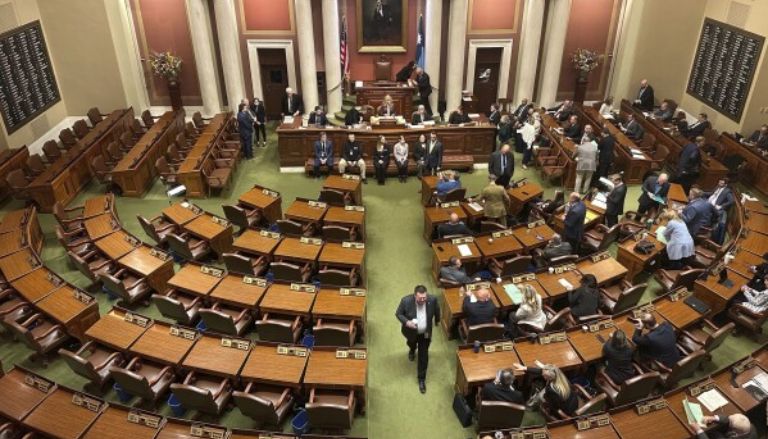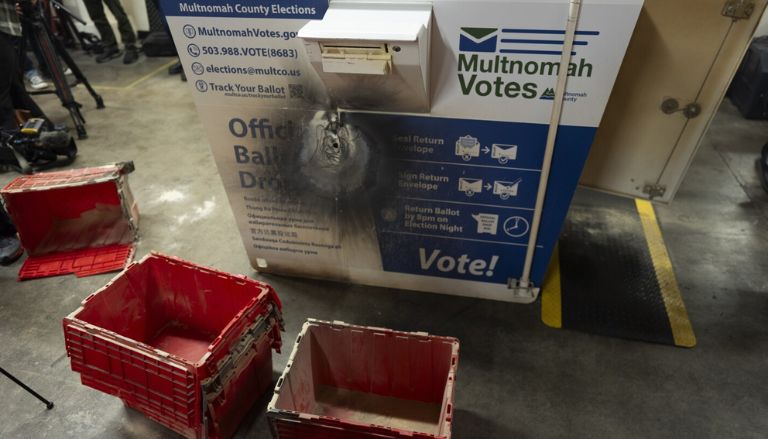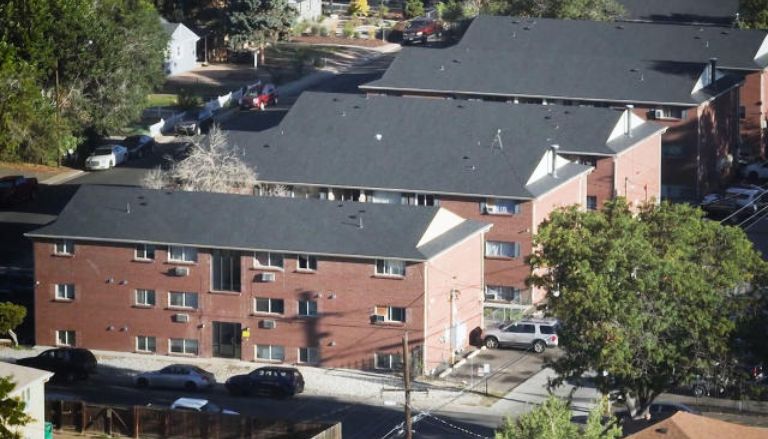ST. PAUL, Minn. — House Democrats and Minnesota Secretary of State Steve Simon have asked the state’s top court to step in and end the partisan power struggle that has sparked the start of the 2025 legislative session. The standoff went into a second day on Wednesday.
Late Tuesday night, Democrat Simon asked the Minnesota Supreme Court to say that he is still officially the leader of the Minnesota House and that Lisa Demuth’s election as speaker on Tuesday was not valid. He asked the court to agree with him that there must be 68 members for there to be a quorum in order to do any legal business in the chamber.
“The House did not have the constitutionally required quorum on January 14,” Simon’s lawyers wrote. “Representative Demuth was not properly elected speaker, and the House cannot do business.” “The Secretary is the House’s leader until there is a quorum and a speaker is elected properly. This person may not take over his job.”
Democrats in the House didn’t show up for the first day of the session to keep Republicans from getting a quorum and using a temporary one-vote majority to get rid of one Democrat and push the GOP plan. Also, late Tuesday night, they asked the Supreme Court to stop Republican lawmakers from doing any business until there are at least 68 members of the quorum and to throw out any actions taken until then as “without lawful authority” and “null and void.”
Demuth said the lawsuits were an attack on the separation of powers between the legislative and executive bodies that is written into the Constitution.
Demuth said in a statement, “Secretary Simon has no authority as a member of the executive branch over proceedings in the House. His role is purely ceremonial.”
Republicans say that a quorum can be reached with only 67 members since one spot is empty.
The Supreme Court moved quickly on both cases, combining them and setting Jan. 23 as the date for oral arguments. The official GOP answer from the House is due by Tuesday.
Harry Niska, of Ramsey, who is the No. 2 House GOP leader, told reporters that they will follow the court’s final decision.
Niska said, “But we don’t think the courts will try to stop the Legislature from working, just like the executive branch can’t stop the Legislature from working.”
The main goal of the parliamentary session is to pass a balanced budget for the next two years by July 1. To do this, lawmakers from both parties will have to work together. Both sides agree that their rules say they need 68 votes to pass real bills. Thursday is when Democratic Gov. Tim Walz is going to release his budget plan.
When Republicans in the House called a floor session on Wednesday to handle normal things like electing the chief clerk, all the seats on the Democrats’ side of the room were empty.
The House was tied at 67–67 after the election in November, and leaders from both parties began working on a power-sharing deal with the idea that they would be split evenly this year. An election judge said last month, though, that Curtis Johnson, a new Democrat, doesn’t live in his district. That gave the Republicans a 67-66 lead for the time being, until a special election on January 28. The election should break the tie since the district, which includes Roseville, is mostly Democratic.
Republicans have said they will use their two-week majority to refuse to seat Rep. Brad Tabke of Shakopee, another Democrat who won his race by 14 votes. This makes Democrats very worried. A court said Tabke was the real winner and said no to the GOP’s plan to hold a special election in his swing district.
In the House, attempts to bring back a power-sharing deal failed. Melissa Hortman of Brooklyn Park, the top Democrat in the chamber, said on Tuesday that Demuth wouldn’t promise to let Tabke keep his spot, even though she had a deal in mind that would have let Demuth be speaker the whole session.
Yesterday, lawyers for the state GOP and a group that works with them asked the Supreme Court to overturn Walz’s order that the Roseville special election would take place on January 28. They said he set the date earlier than the law allowed because the seat wasn’t empty until Tuesday when the Legislature met.
Nathan Hartshorn, an assistant attorney general, said that the spot was empty on December 27 because Johnson had lost in court and told the governor he would not appeal the judge’s decision. Hartshorn said that the governor followed the rules when he filled the seat as soon as possible.
When asked about how quickly they would rule, the judges said they were aware that the cases were connected.







Leave a Comment